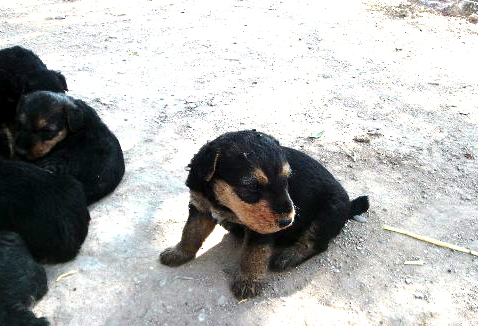Dog Protects a Friend Dog on Highway
Dog Protects a Friend
Friendship among dog in need.
httpv://youtu.be/7AkANQls234
From Wikipedia, the free encyclopedia:
Studies using an operant framework have indicated that humans can influence the behavior of dogs through food, petting and voice. Food and 20–30 seconds of petting maintained operant responding in dogs. Some dogs will show a preference for petting once food is readily available, and dogs will remain in close proximity to a person providing petting and show no satiation to that stimulus. Petting alone was sufficient to maintain the operant response of military dogs to voice commands, and responses to basic obedience commands in all dogs increased when only vocal praise was provided for correct responses.
A study using dogs that were trained to remain motionless while unsedated and unrestrained in an MRI scanner exhibited caudate activation to a hand signal associated with reward. Further work found that the magnitude of the canine caudate response is similar to that of humans, while the between-subject variability in dogs may be less than humans. In a further study, 5 scents were presented (self, familiar human, strange human, familiar dog, strange dog). While the olfactory bulb/peduncle was activated to a similar degree by all the scents, the caudate was activated maximally to the familiar human. Importantly, the scent of the familiar human was not the handler, meaning that the caudate response differentiated the scent in the absence of the person being present. The caudate activation suggested that not only did the dogs discriminate that scent from the others, they had a positive association with it. Although these signals came from two different people, the humans lived in the same household as the dog and therefore represented the dog’s primary social circle. And while dogs should be highly tuned to the smell of items that are not comparable, it seems that the “reward response” is reserved for their humans.
Research has shown that there are individual differences in the interactions between dogs and their human masters that have significant effects on dog behavior. In 1997, a study showed that the type of relationship between dog and master, characterized as either companionship or working relationship, significantly affected the dog’s performance on a cognitive problem-solving task. They speculate that companion dogs have a more dependent relationship with their owners, and look to them to solve problems. In contrast, working dogs are more independent.

